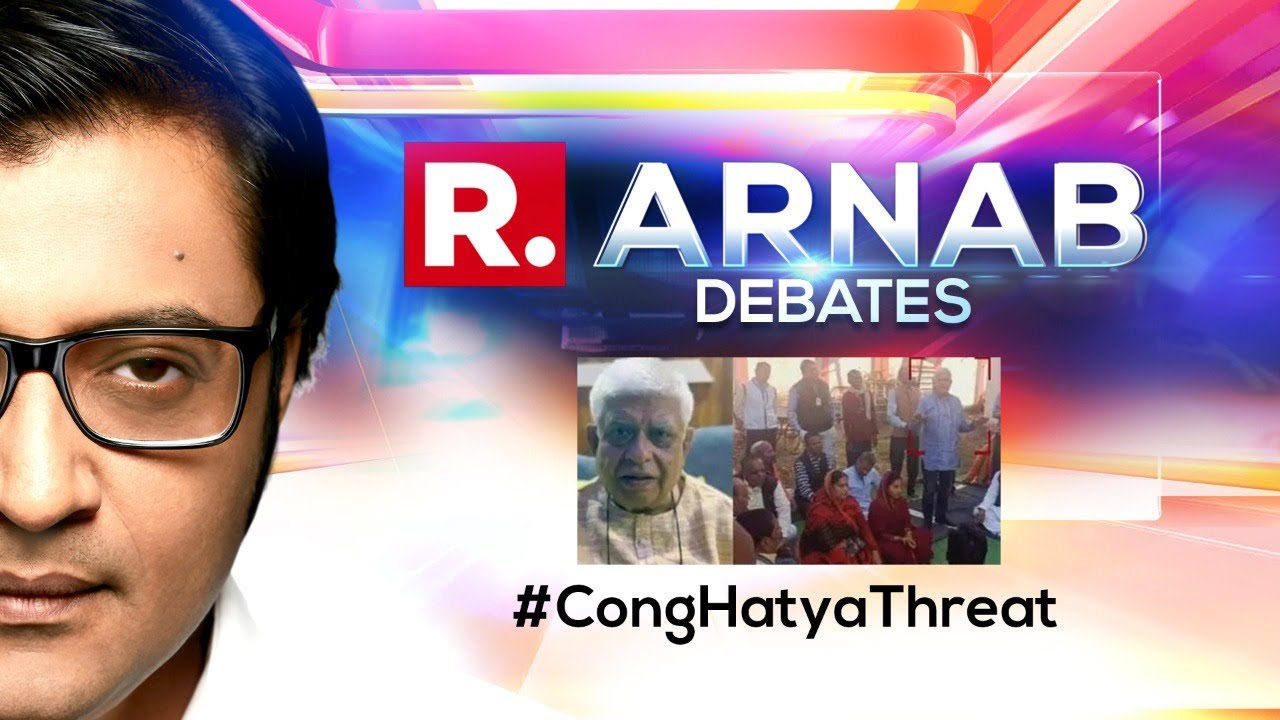


Congress General Secretary Jairam Ramesh criticizes PM Narendra Modi for declaring June 25th as 'Samvidhaan Hatya Diwas' while also accusing him of imposing an undeclared Emergency for 10 years. Ramesh labels June 4th as 'ModiMuktiDiwas' and condemns the PM for assaulting the Constitution of India and its principles.
BJP and Congress Lock Horns over 'Emergency' and 'Constitution Day' Controversy
The ruling Bharatiya Janata Party (BJP) and the opposition Congress have been embroiled in a war of words over the commemoration of 'Emergency' and 'Constitution Day.' The controversy erupted after Prime Minister Narendra Modi declared June 25th as 'Samvidhaan Hatya Diwas' (Constitution Murder Day) on the occasion of the 46th anniversary of the Emergency.
Congress's Accusations
Congress General Secretary Jairam Ramesh accused Modi of declaring June 25th as 'Samvidhaan Hatya Diwas' to "undermine the foundational values of the Indian Constitution." He also alleged that Modi had imposed an "undeclared Emergency" for the past ten years, citing the silencing of dissent and the erosion of democratic institutions.
BJP's Rebuttal
The BJP has refuted the allegations of an "undeclared Emergency," stating that Modi's government has upheld constitutional principles and ensured the protection of individual rights. Party spokesperson Sambit Patra highlighted the passage of the Citizenship Amendment Act, the abrogation of Article 370, and the triple talaq ban as examples of the government's commitment to constitutional values.
'ModiMuktiDiwas' and 'Samvidhaan Hatya Diwas'
Ramesh has announced June 4th, the day Modi was sworn in as Prime Minister in 2014, as 'ModiMuktiDiwas' (Modi Liberation Day). He asserted that this day marked the beginning of the "assault on the Constitution and its values."
Historical Context
The Emergency was a period of authoritarian rule imposed by Prime Minister Indira Gandhi from 1975 to 1977. During this time, fundamental rights were suspended, political opponents were arrested, and the press was censored. The Emergency remains a contentious event in Indian history, with different political parties interpreting its legacy differently.
Top 5 FAQs and Answers
1. What was the Emergency?
A period of authoritarian rule in India from 1975 to 1977, characterized by the suspension of fundamental rights, the arrest of political opponents, and the censorship of the press.
2. Who imposed the Emergency?
Indira Gandhi, then Prime Minister of India.
3. Why was the Emergency declared?
Gandhi claimed it was necessary to quell internal unrest and opposition to her government.
4. What was the impact of the Emergency?
The Emergency had a devastating impact on democratic institutions, civil liberties, and the rule of law in India.
5. When was the Emergency lifted?
The Emergency was lifted in 1977 after Gandhi's defeat in the general elections.

The Bharatiya Janata Party (BJP) in Andhra Pradesh marked Dhanvantari Jayanti with a colorful rally and speeches highlighting social inclusion, cultural heritage, and development. Leading state and district leaders, including BJP State president PVN Madhav, addressed the gathering and emphasized the party's commitment to equal respect for all religions and welfare initiatives for marginalized groups. At another event, Telangana BJP president Ramachandra Rao endorsed a proposed reservation for backward classes in Telangana and criticized the Congress and other parties for corruption while touting BJP's claim of clean governance.

Defence Minister Rajnath Singh, while flagging off the first batch of BrahMos missiles in Lucknow, warned Pakistan that their entire territory is now within range of India's powerful missiles. Singh also highlighted the success of Operation Sindoor, stating that it was just a glimpse of India's growing capabilities. The minister emphasized that BrahMos serves as a symbol of India's strategic confidence and is a key pillar of the country's defence forces.

Crowds gathered in various cities across the US and overseas today for the No Kings rallies, organized to protest against President Trump's administration and to defend First Amendment rights. From Los Angeles and New York to Chicago, Washington D.C, and Austin, Texas, protesters marched and chanted, carrying homemade signs with messages such as "We want all of the government to work" and "Make America Good Again." Despite the festive atmosphere, the message was serious as speakers called for the protection of Constitutional rights, which they feel are being threatened by the current administration.

After issuing directions earlier this year to expedite the disposal of execution petitions, the Supreme Court has expressed disappointment over the fact that more than 8.8 lakh such petitions are still pending across the country. Despite disposing of 3.38 lakh petitions since March, the Court notes that the backlog is still concerning. It warns that delay in executing decrees could result in travesty of justice and directs the Karnataka High Court to provide an explanation for not submitting data on pending cases.

With election results just around the corner, the Union Home Minister has reiterated the BJP's respect for its alliance partners. The decision on forming a government in light of the election outcome will be based on the results and mutually agreed upon by all parties involved. Stay updated with News24 for the latest developments in the political sphere.

In a surprise move, President Donald Trump has commuted the sentence of former U.S. Representative George Santos, who was serving a seven-year prison term for fraud and identity theft. Santos, a New York Republican, admitted to deceiving donors and stealing the identities of 11 people, including family members, to fund his campaign. The decision was announced by Trump on social media, spurring strong reactions from both supporters and critics.

In a significant development, Defence Minister Rajnath Singh inaugurated Hindustan Aeronautics Limited's third production line for the LCA Tejas Mk1A and also witnessed the aircraft's successful maiden flight in Nashik. The event also marked the inauguration of HAL's second production line for the Hindustan Turbo Trainer-40 (HTT-40). With the approval of the purchase of 97 LCA Mark 1A fighter jets, the need for new inductions has been underlined by IAF chief AP Singh, while HAL officials remain confident in meeting this requirement.

In a significant development, over 200 Maoist rebels, including top leaders Rupesh and Ranita, have surrendered to Indian security forces in the Bastar region of Chhattisgarh. This marks a critical moment in the long-standing fight against Naxalism in the country. The region of Abujhmarh and North Bastar, known for its dense forests and difficult terrain, has historically served as a safe haven for Maoist groups, making it challenging for authorities to root out their presence. The massive surrender of Maoists is not only a tactical win but also a symbolic victory in the government's efforts to rid the "Red Corridor" of Naxalite influence.

Amidst his busy schedule, Congress leader Rahul Gandhi is set to make a heartfelt tribute to Zubeen Garg, the beloved singer of Assam, by attending his last rites at 'Zubeen Kshetra' in Sonapur. In anticipation of his arrival, strict security measures have been implemented in the area since morning, with a thorough inspection conducted by Gaurav Gogoi. With the deployment of police, paramilitary forces, and CCTV cameras, all eyes will be on the site to ensure a peaceful and incident-free event.

The Supreme Court has agreed to hear Tamil Nadu Deputy Chief Minister Udhayanidhi Stalin's plea in 2026 to combine and transfer all FIRs and complaints related to his comments on "eradicate Sanatan Dharma" made in 2023. Stalin's lawyer, Mukul Rohatgi, argued that multiple FIRs and complaints had been filed against his client and requested for the matter to be posted in 2026. The top court had previously ordered no new FIRs to be registered against Stalin without its permission, stating that multiple complaints on a single issue were not valid.